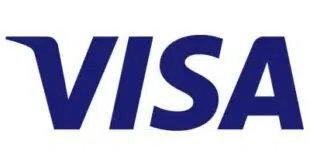On the heels of a quarter that featured a nearly 10% increase in U.S. payment volume, Visa Inc. chief executive Charles W. Scharf signaled Thursday that the leading payment network is counting on new digital services to power future growth. Those services include the new Visa Checkout online payment service and a tokenization initiative that Visa also announced on Thursday.
Visa Checkout is the successor to V.me, Visa’s entry in an online-wallet market that has seen many players struggle. Square Inc. discontinued its wallet in May, and Google Inc.’s Google Wallet has gone through several iterations. An analyst at Visa’s earnings conference call for the third quarter of fiscal 2014 ended June 30 asked Scharf just what will be different about Visa Checkout from PayPal Inc.’s wallet or potential future payment services from the likes of Apple Inc.
Scharf responded by reminding his listeners that last week’s announcement about Visa Checkout said the service already had the support of many financial institutions, some 180, including some of the biggest in the U.S. “From our perspective, what’s different about this versus the other things that you mentioned are the relationships that we have with banks,” Scharf said. “We’ve got 2.2 billion cards around the world.”
Scharf also noted that Visa Checkout will be supported with heavy marketing and advertising. “We’ve got some really neat stuff in the digital and social channels,” he said, adding that “we intend to spend a significant amount” on advertising, including on television, in the back-to-school and Christmas holiday seasons. “It’s going to be hard not to know what Visa Checkout is and why you should have it, and so we’re pretty excited about that,” Scharf said.
Meanwhile, the new tokenization and cloud-based services initiative represents an effort to bring software developers and technology companies into closer collaboration with Visa to create new services. Scharf said Visa sees tokens as not just for security, their original role in payments, but also as instruments for driving new volume to Visa. The initiative, however, will not change the traditional roles of merchant acquirers and card issuers in the transaction flow, he added.
Visa’s card-not-present transaction volumes are growing at three times the rate of physical transactions. In all, Visa reported $627 billion in U.S. payment volume in the third quarter, up 9.8% from $571 billion a year earlier, on 12.2 billion transactions, up 9%. U.S. debit card payments totaled $323 billion on 8.65 billion transactions, both up 7.7%. Credit card payment volume posted another strong quarter, increasing 12.2% to $303 billion on 3.57 billion transactions, up 12.1%.
Visa reported net income of $1.36 billion, up 11% from $1.23 billion in fiscal 2013’s third quarter, on operating revenues of $3.16 billion, up 5.1% from $3 billion. Incentives to issuers and merchants increased 22% to $638 million.
Chief financial officer Byron Pollitt reported that Visa is in talks to remain in Russia in the wake of Russia’s plans to create a domestic payments system. Visa expects to be part of a commercial system that will launch next year, a system that will produce $50 million less in annual processing revenues for Visa than it gets now. Russia’s action came in response to Western sanctions imposed on it in the wake of its interventions in Ukraine.
Also on Thursday, mobile-payments technology provider LoopPay Inc. said that Visa was one of its investors in a funding round announced earlier this month that includes Synchrony Financial (formerly GE Capital Retail Finance) and other partners not yet named. LoopPay’s Magnetic Secure Transmission technology enables existing point-of-sale terminals to process contactless payments from mobile devices with no hardware changes required by merchants.





